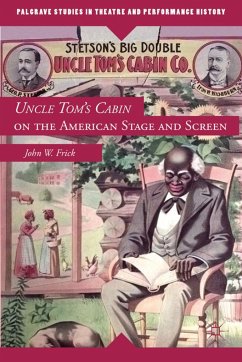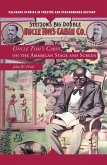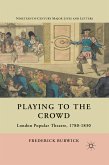No play in the history of the American stage has been as ubiquitous and as widely viewed as Uncle Tom's Cabin. This book traces the major dramatizations of Stowe's classic from its inception in 1852 through modern versions on film. Frick introduces the reader to the artists who created the plays and productions that created theatre history.
"John Frick's comprehensive study of the myriad theatrical and movie interpretations of Uncle Tom's Cabin should be required reading for all scholars of American culture and theatre . . . The scope and breadth of Frick's study is truly epic . . . [it] masterfully and comprehensively synthesizes mountains of primary research data and scholarship on the major American stage and screen adaptations of Uncle Tom's Cabin." - Journal of Dramatic Theory and Criticism
"Frick not only illuminates nineteenth century stage practices (for example, the odious custom of white actors performing in blackface) and the play itself, but he also provides a panoramic view of the titanic social issues inherent in the play and that the work directly influenced, in regard to slavery . . . Frick's eye for engaging details and his astute and thorough scholarship provide a treasure trove for theatre and cultural historians . . . Frick's study makes clear that the play's ongoing dialogue with its culture, for better or worse, is as enduringly American as that proverbial apple pie." - Broadside
"Covering major theatrical and cinematic adaptation from the 1850s to the early twenty-first century, Frick deftly mixes primary source detail, historical context and critical insights from contemporary scholars." - Tyler A. Smith, Theatre Survey
"Frick not only illuminates nineteenth century stage practices (for example, the odious custom of white actors performing in blackface) and the play itself, but he also provides a panoramic view of the titanic social issues inherent in the play and that the work directly influenced, in regard to slavery . . . Frick's eye for engaging details and his astute and thorough scholarship provide a treasure trove for theatre and cultural historians . . . Frick's study makes clear that the play's ongoing dialogue with its culture, for better or worse, is as enduringly American as that proverbial apple pie." - Broadside
"Covering major theatrical and cinematic adaptation from the 1850s to the early twenty-first century, Frick deftly mixes primary source detail, historical context and critical insights from contemporary scholars." - Tyler A. Smith, Theatre Survey








